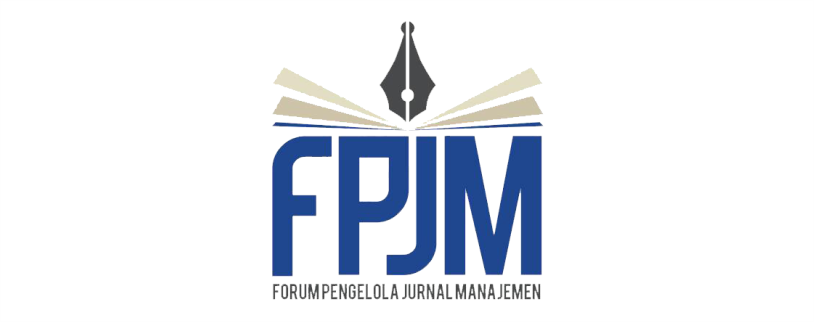Optimalisasi Peran Pemerintah Daerah dalam Mendukung Penyaluran Kredit Usaha Rakyat di Jawa Timur
DOI:
https://doi.org/10.26905/jmdk.v7i1.2841Keywords:
Kredit Usaha Rakyat, Local Goverment, MicroentrepreneurAbstract
This study aims to analyze : 1) the relationship between fiscal capacity and APBD expenditure on Koperasi and MSME affairs; 2) the effect of APBD expenditure for Koperasi and MSME affairs and  KUR facilitator toward socialization and mentoring; and 3) the effect of socialization and mentoring on the amount of KUR debtors. The design of the study uses mixed methods, researchers combine surveys (quantitative) with case studies (qualitative). The study population was the district/city implementing the KUR program with sample selection using a purposive sampling technique. Data analysis in this research uses Chi-Square tests and Path Analysis. The research shows : 1) fiscal capacity is not related to APBD expenditure for Koperasi and MSME affairs; 2) APBD expenditure for koperasi and MSME affairs and the KUR facilitator have no significant effect on KUR socialization and assistance; and 3) socialization and mentoring have a significant effect on the number of KUR Debtors.
https://doi.org/10.26905/jmdk.v7i1.2841
Downloads
References
Aaron Schneider. (2003). Decentralization: Conceptualization and Measurement. Studies in Comparative International Development, 38(3), 32–56.
Asep Suryahadi, Athia Yumna, Umbu Reku Raya, & Deswanto Marbun. (2010). Review of Government’s Poverty Reduction Strategies, Policies, and `Programs in Indonesia. Jakarta: SMERU Research Institute.
Bachtiar Rifai. (2013). Pengembangan Model Penguatan Peran Pemerintah Daerah Dalam Mendukung Program Kredit Usaha Rakyat (KUR) Guna Pengurangan Kemiskinan. Kajian Ekonomi dan Keuangan, 17 No. 3, 185–200.
Bappenas. (2011). Kajian Kualitas Belanja Anggaran Pendapatan dan Belanja Negara (APBD). Jakarta: Direktorat Otonomi Daerah - Deputi Bidang Pengembangan Regional dan Otonomi Daerah, BAPPENAS.
D. Sutanto. (2010). Strategi Peningkatan Kapasitas Modal Sosial dan Kualitas Sumberdaya Manusia Pendamping Pengembangan Masyarakat. Jurnal Komunikasi Pembangunan, 08 No. 1, 77–89.
Didi Ahmadi. (2015). Desentralisasi dan Pembangunan Daerah di Indonesia : Menciptakan Pemerintah Daerah yang Efektif, Responsif dan Akuntabel. Jurnal Pembangunan Daerah, III, 23–40.
Edi Suharto. (2005). Membangun Masyarakat Memberdayakan Masyarakat, Kajian Strategis Pembangunan Kesejahteraan Sosial dan Pekerjaan Sosial. Bandung: PT. Refika Aditama.
Edith T. Penrose. (1959). The Theory of the Growth of the Firm. Oxford: Blackwell.
Eko Aristanto. (2017). Dinamika Sosialisasi dan Pendampingan Pelaku Usaha Mikro, Kecil, Menengah dalam Perluasan Akses Program Kredit Usaha Rakyat. Malang: Program Studi Keuangan dan Perbankan, Universitas Merdeka Malang.
Eko Aristanto. (2019). Kredit Usaha Rakyat (KUR) : Pilihan Kebijakan Afirmatif Mendorong Pengembangan Usaha Mikro, Kecil dan Menengah di Indonesia. Journal of Banking and Finance, 1 No. 1, 10–23.
Elazar J. Pedhazur. (1982). Multiple Regression in Behavioral Research (Second Edition). San Diego, California: Harcourt College Publishing.
Gordon Murray, Marc Cowling, Weixi Liu, & Olga Kalinowska-Beszczynska. (2012). Government co-financed ‘Hybrid’Venture Capital programmes: generalizing developed economy experience and its relevance to emerging nations. Kauffman International Research and Policy Roundtable, Liverpool, 1–29.
Jan Smolarski, & Can Kut. (2011). The Impact of Venture Capital Financing Method on SME Performance and Internationalization. International Entrepreneurship and Management Journal, 7 (1), 39–55. https://doi.org/10.1007/s11365-009-0128-1
John Gerring. (2006). Case Study Research: Principles and Practices. New York: Cambridge University Press.
John W. Creswell. (2014). Research Design : Qualitatives, Quantitative, and Mixed Methods Approaches (Fourth Edition). United State of America: SAGE Publications,Inc.
Juli Panglima Saragih. (2003). Desentralisasi Fiskal dan Keuangan Daerah dalam Otonomi (Pertama). Jakarta: Ghalia Indonesia.
Malcolm Payne. (1986). Social Care in the Community. London: Palgrave Social & Cultural Studies Collection.
Meby Damayanti, & Latief Adam. (2015). Program Kredit Usaha Rakyat (KUR) Sebagai Alat Pendorong Pengembangan UMKM di Indonesia. Diambil dari http://www.tnp2k.go.id/images/uploads/downloads/WP_27_0611-1.pdf
Mohammad Khusaini. (2006). Ekonomi Publik : Desentralisasi Fiskal dan Pembangunan Daerah. Malang: BPFE Universitas Brawijaya.
Muhammad Yunus. (2008). Grameen Bank at a Glance. Dhaka: Grameen Communications.
Nurhemi, & Guruh Suryani. (2015). Dampak Otonomi Keuangan Dearah terhadap Pertumbuhan Ekonomi di Indonesia. Buletin Ekonomi Moneter dan Perbankan, 8 No. 2, 183–205.
Ratih Dewayanti, & Erna Ernawati Chotim. (2004). Marjinalisasi dan Eksploitasi Perempuan Usaha Mikro di Perdesaan Jawa. Yayasan Akatiga.
Reid, A.; Nightingale, P. (2011). The Role of Different Funding Models in Stimulating the Creation of Innovative New Companies. What is the most appropriate model for Europe? A report to the European Research Area Board. European Commission, Technopolis.
Sarlito Sarwono. (1983). Teori-teori Psikologi Sosial. Jakarta: PT. Raja Grafindo Persada.
Sewall Wright. (1934). The Method of Path Coefficients. The Annals of Mathematical Statistics, Vol 5, No. 3, 161–215.
Sugiyono. (2008). Metode Penelitian Bisnis. Bandung: Alfabeta.
Syarir Ika, R. Nurhidayat, & Mutaqin. (2016). Kredit Usaha Rakyat (KUR) : “Indonesian Way†Untuk Mensejahterakan Rakyat Indonesia. Diambil dari www.fiskal.kemenkeu.go.id/dw-konten-view.asp?id=20160630153115650255356
TNP2K. (2010). Program Penanggulangan Kemiskinan Berbasis Pemberdayaan Usaha Mikro dan Kecil. Jakarta: Tim Nasional Percepatan Penanggulangan Kemiskinan (TNP2K) - Sekretariat Wakil Presiden Republik Indobesia.
Vitalija Venckuviene, & Vytautas Snieska. (2014). Government Sponsored Venture Capital Funds and Their Relation to Innovations in Lithuanian SMEs. Economics and Management, 19 No. 1, 54–62.
Zaid Abdul Karim Jaradat, Roshaiza Binti Taha, Rosliza Binti Mat Zin, & Wan Zuriati Wan Zakaria. (2018). The Impact of Financial Accessibility Constraints and Government Regulations on theOrganisational Performance of Small and Medium Sized Enterprises. Journal of Business and Retail Management Research, 13(01), 108–120. https://doi.org/10.24052/JBRMR/V13IS01/ART-11
Downloads
Published
Issue
Section
License
Authors who publish with this journal agree to the following terms:
(1)Â Copyright of the published articles will be transferred to the journal as the publisher of the manuscripts. Therefore, the author confirms that the copyright has been managed by the journal.
(2) Publisher of Jurnal Penelitian is University of Merdeka Malang.
(3) The copyright follows Creative Commons Attribution–ShareAlike License (CC BY SA): This license allows to Share — copy and redistribute the material in any medium or format, Adapt — remix, transform, and build upon the material, for any purpose, even commercially.












